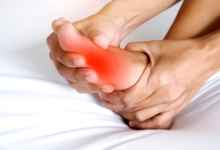Why Do Women Get Menstrual Periods Early?
The yearly observance of World Menopause Day on October 18th provides a worldwide forum for spreading awareness about menopause, also known as “Rajonivrutti” in Hindi. The goal of this celebration is to educate women about the different difficulties related to menopause. Menopause is the term used to describe the end of menstruation naturally as a result of the multiple hormonal changes that occur in women as they age.
Premenopausal Menopause: An Overview
Pre-menopausal menopause is the term for menopause that begins early, often between the ages of 45 and 55. As the ovaries’ egg production decreases during this period, estrogen levels also diminish. Menstrual cycles stop at a younger age when estrogen levels decline, a key hormone for controlling the reproductive cycle. As a result, there is a considerable drop in the likelihood of conception at this stage. Premenopausal symptoms can result from a combination of food and lifestyle variables.
Premenopause causes:
Pre-menopause is caused by a number of reasons, such as ovarian surgery, radiation therapy for certain disorders, heavy alcohol usage, smoking, chemotherapy, and genetic predispositions. Additionally, a few common autoimmune diseases or disorders in women might cause menopause to start sooner than typical.
Premenopause symptoms include:
Women may experience premenopausal symptoms in a variety of ways, and they may range in intensity. These symptoms may last throughout the transition phase and often start to appear six to seven months before the start of menopause. It’s essential to comprehend the subtleties of these symptoms in order to identify and treat pre-menopausal alterations. The symptoms are broken out in greater depth below:
Women may suffer anomalies in their menstrual cycles, including missing periods, abnormally heavy or light bleeding, and inconsistent cycle durations.
Emotional Changes: The hormonal changes occurring in the body may cause increased irritation, mood swings, and inexplicable emotional variations.
Hot flashes and night sweats: These unexpected, strong sensations of heat, which are often accompanied by perspiration, may interfere with sleep and everyday activities, leaving women feeling uneasy and upset.
Reduced estrogen levels may cause changes in vaginal tissue, which can result in dryness, itching, and overall discomfort in the vaginal region.
Women may feel mild to severe breast soreness or swelling, which is often accompanied by feelings of heaviness or fullness in the breasts.
Increased Sensitivity to Heat: Women may have an increased sensitivity to heat, notably feeling overheated or feeling more uncomfortable in warm situations.
Sexual discomfort: A common symptom, a reduction in sexual desire or libido, is often related to hormonal changes that have an impact on one’s sexual health and general well-being.
Physical exhaustion: The body’s responses to shifting hormone levels may result in persistent and inexplicable exhaustion that isn’t always related to increased physical activity.
Women may have trouble falling asleep or remaining asleep, often as a result of the onset of night sweats, hot flashes, or emotional changes that impact sleep habits.
Changes in mental health: During the pre-menopausal stage, there may be an increase in stress, worry, and difficulties dealing with everyday issues, which may have an effect on one’s general mental well-being.
Premenopause Management Options:
Although navigating the pre-menopausal stage may be difficult, using sensible tactics can greatly ease the transition and improve general wellbeing. Here are certain strategies for handling premenopause:
Keeping Up a Healthy Diet:
Balanced nutrition is important for sustaining overall health, so make sure your diet is full of healthy grains, lean meats, fruits, and vegetables.
Consumption of dairy products, leafy greens, and fortified cereals may help reduce the incidence of osteoporosis, which often occurs after menopause.
Foods High in Phytoestrogens: Eating foods high in phytoestrogens, such as soy products, flaxseeds, and legumes, may help control the body’s estrogen-like effects.
Regular Workout Schedule:
Cardiovascular Exercises: Regular cardiovascular activity, such as cycling, swimming, or walking, may assist to increase physical stamina and heart health.
Exercises for maintaining muscle mass, bone density, and general physical strength include strength training.
Yoga and meditation: These practices may help reduce stress, foster emotional well-being, and enhance general mental health.
Keeping a healthy weight:
Healthy Weight Management: Maintaining a healthy weight during the pre-menopausal stage requires a focus on a balanced diet and frequent exercise.
Controlling portion sizes and abstaining from overeating may help limit calorie consumption and stave against weight gain.
Stress Reduction Methods:
Deep breathing exercises, meditation, and progressive muscle relaxation are all mindfulness-based relaxation techniques that may significantly lower stress levels.
Hobbies & Leisure Activities: Taking part in hobbies, leisure pursuits, or artistic endeavors may help to reduce stress and foster feelings of contentment and satisfaction.
Healthy Sleeping Patterns
Establishing a Routine: Consistently following a sleep routine, which involves going to bed and getting up at the same time each day, may improve both the quality of your sleep and your general wellbeing.
Making a Peaceful Environment: You may get better sleep by making your bedroom as quiet, dark, and distraction-free as possible.
Intake of Balanced Fluids and Hydration:
Water Intake: Maintaining optimum body functioning and advancing general health may both be accomplished by drinking sufficient of water during the course of the day.
Limiting alcohol and caffeine intake might help you stay hydrated and reduce your likelihood of experiencing hot flashes and other menopausal symptoms, such as night sweats.
Consultation with a Medical Professional
Regular Checkups: Making appointments for routine medical checkups might make it easier to maintain your general health and wellbeing throughout the premenopausal stage.
Medication and Hormone Therapy: Some women may have significant symptom alleviation with hormone replacement therapy or other drugs after seeking advice from a healthcare practitioner about the possible advantages and dangers of these treatments.
Women may handle premenopausal problems and retain a healthy, meaningful lifestyle by implementing these all-encompassing tactics into their everyday lives. Recognizing the distinctiveness of each person’s experience and adapting these strategies to suit individual requirements and preferences are crucial.







